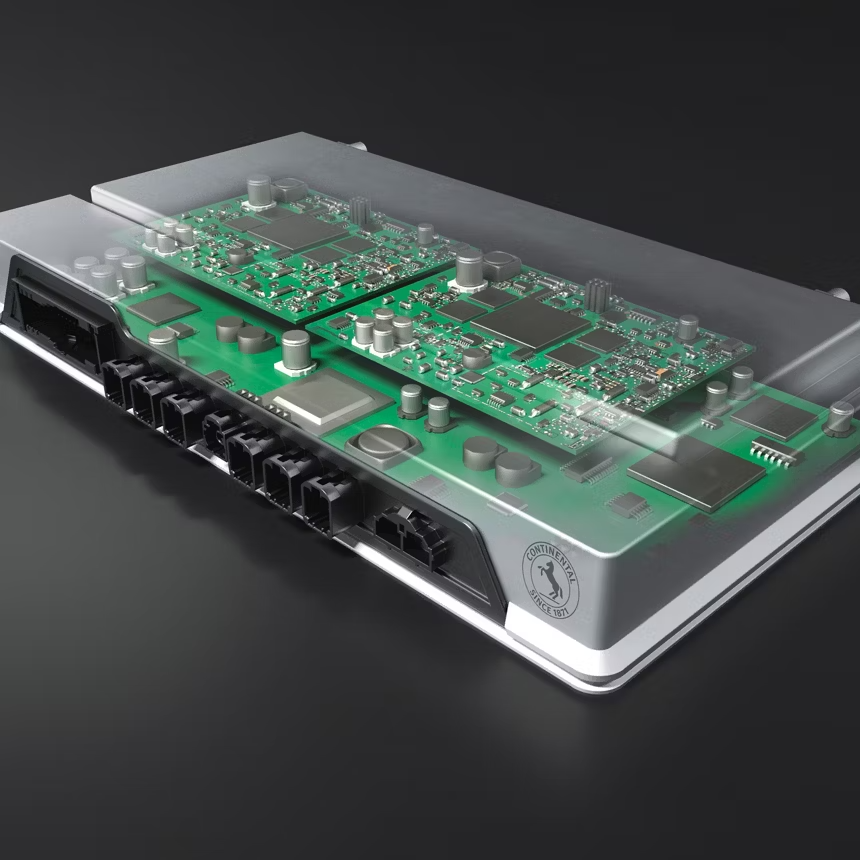ADCU platform software
The project focused on developing and improving the platform and framework software for a Next-Generation Autonomous Driving Control Unit (ADCU) system.
This system was developed to provide a flexible and versatile solution for various customers and vehicle types in the automotive industry. The development process included implementing and thoroughly testing the entire platform and vehicle software, with a strong focus on both classic and adaptive AUTOSAR functionalities. Key modules included ECUM (ECU Management) and BSWM (Basic Software Management).

The technological stack for this project was comprehensive and modern, including tools and standards such as TI TDA4, AUTOSAR, Linux, Inter-Processor Communication (IPC), Ethernet (ETH), CANfd, and compliance with ISO 26262 ASIL D standards. In addition, the project met the requirements of A-SPICE Level 3 processes, ensuring a high standard in software development and quality.
The software engineering responsibilities encompassed a wide spectrum, starting with requirement management and creating a detailed software architecture. This phase involved gathering and specifying all requirements to ensure that all customer and security requirements were considered. This was followed by developing a robust and scalable architecture that supported both classical and adaptive AUTOSAR modules. After the architecture phase, the project moved into the complex stages of coding and integration, where software modules were implemented and integrated into the ADCU platform using modern programming languages and technologies.
The development process also included comprehensive testing, including unit tests, integration tests, and system tests, to ensure the functionality and security of the software. These tests ensured that the ADCU system was reliable and efficient. The technologies and tools used, such as TI TDA4, AUTOSAR, Linux, Inter-Processor Communication (IPC), Ethernet (ETH), and CANfd, along with compliance with ISO 26262 ASIL D standards, ensured that the system met the highest requirements for safety and reliability.
The project delivered a highly configurable and reliable ADCU platform that supports a wide range of automotive applications. Due to the flexibility and versatility of the system, it could be adapted to various sensor setups and use cases, making it a valuable solution for the automotive industry. Sensified was responsible for the successful execution of this project, ensuring all project goals were achieved through the use of advanced technologies and rigorous development and testing methods.

ADVANTAGES AND CHARACTERISTICS
- Max. The sensor configuration varies depending on the hosted function, up to:
- 12x camera
- 5x Radar (CAN interface or Ethernet interface)
- 1x Lidar (Gbit Ethernet)
- 16x USS DSI-3
- Hosts applications for artificial intelligence
- Optimal hardware and software co-design is achieved through single-/dual-/multi-core processors.
- Functional safety level up to ASIL D
- Supports SAE levels up to 2+ and is capable of Level 3.
- Classic and AUTOSAR Adaptive for over-the-air updates
Full software stack ADAS platform on a new hardware platform
I started the collaboration with Berthold in a new platform development project, a full SW stack on a new HW Platform. I was very satisfied with the communication, transparency in actions and the commitment Berthold and his Team demonstrated in our project.
Berthold brought the right mindset into the team. They had a high technical understanding to analyze and fix the most challenging software issues in a new architectural environment.
The collaboration boosted our product development and marked a milestone for the successful positioning of our company with a new product in the market.

Andrea K.
Director Automotive Strategy, Amazon (former VP Engineering Platforms & Ecosystems, Continental BU ADAS)